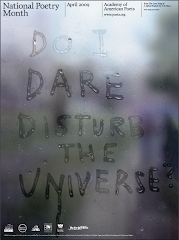The first half of Mrs. Dalloway often had more references to windows as a way to look out; to witness the world without actually being a part of it. The second half, however, had more instances of windows being the way to an escape. Though I cannot provide accurate page numbers to your newer versions, I want to share the passage when Septimus throws himself out of the window.
"Getting up rather unsteadily, hopping indeed from foot to foot, [Septimus] considered Mrs. Filmer's nice clean bread-knife with 'Bread' carved on the handle. Ah, but one mustn't spoil that. The gas fire? But it was too late now. Holmes was coming. Razors he might have got, but Rezia, who always did that sort of thing, had packed them. There remained only the window, the large Bloomsbury lodging-house window; the tiresome, the troublesome, and rather melodramatic business of opening the window and throwing himself out. It was their idea of tragedy, not his or Rezia's (for she was with him). But he would wait till the very last moment. He did not want to die. Life was good. The sun hot. Only human beings? Coming down the staircase opposite an old man stopped and stared at him. Holmes was at the door. 'I'll give it you!' he cried, and flung himself vigorously, violently down on to Mrs. Filmer's area railings." (108, some page much later in the newer editions)
Though not to that extremity, Clarissa uses a window as a way of escape from her party after hearing about Septimus, and shares the moment with observing the outside world and others as he did in his last moments.
"[Clarissa] walked to the window. It held, foolish as the idea was, something of her own in it, this country sky, this sky above Westminster. She parted the curtains, she looked. Oh, but how surprising! -- in the room opposite the old lady stared straight at her! She was going to bed. And the sky. It will be a solemn sky, she had thought, it will be a dusky sky, turning away its cheek in beauty... She was going to bed, in the room opposite. It was fascinating to watch her, moving about, that old lady, crossing the room, coming to the window. Could she see her? It was fascinating, with people still laughing and shouting in the drawing-room, to watch that old woman, quite quietly, going to bed alone. She pulled the blind now. The clock began striking. The young man had killed himself; but she did not pity him; with the clock striking the hour, one, two, three, she did not pity him, with all this going on. There! the old lady had put out her light! the whole house was dark now with this going on... She must go back to them. But what an extraordinary night! She felt somehow very like him -- the young man who had killed himself. She felt glad that he had done it; thrown it away while they went on living. The clock was striking. The leaden circles dissolved in the air. But she must go back. She must assemble. She must find Sally and Peter. And she came in from the little room." (134-5, fairly close to the end)
Subscribe to:
Post Comments (Atom)













Mar,
ReplyDeleteThis is a good comparison of two window moments which clearly correlate with each other. It may also be worth noting that the first time Clarissa and Septimus cross paths is through the window at the flower shop (although it is less obvious in the novel than in the movie).
Abby